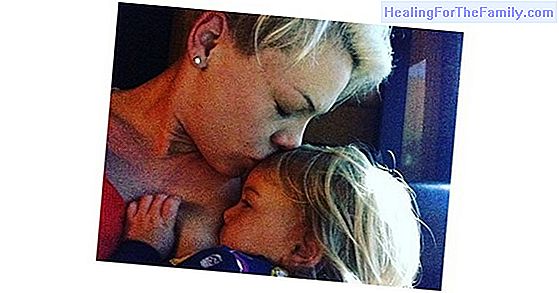Risks of advancing complementary feeding in the baby
The recommendations on the age in which to begin complementary feeding have been changing over the years. Originally, at the beginning of the last century, babies were breastfeeding until 12 months. The fact that certain deficiencies appeared in iron and vitamin C caused the age of introduction of n
The recommendations on the age in which to begin complementary feeding have been changing over the years. Originally, at the beginning of the last century, babies were breastfeeding until 12 months.
The fact that certain deficiencies appeared in iron and vitamin C caused the age of introduction of new foods to be advanced, and since then, the recommendations have varied since the introduction as early as 3-4 weeks (cereals in a bottle) like the current one, at 6 months of age, going through a time when the recommendation was approximately 12-16 weeks (3-4 months).
When to introduce complementary feeding

At present, there seems to be enough evidence to affirm that the most appropriate window for the introduction of complementary feeding occurs around 6 months. In addition, there is no additional evidence to support the need to postpone the introduction of typically allergenic foods such as fish, nuts or eggs beyond 6-7 months para, to prevent the development of this type of allergy, not even in the case of a family history of allergies.The latest research suggests that
the turning point is in the 17 weeks (4 months). Overcoming this age seems crucial to avoid the emergence of food allergies, in addition, it seems that the introduction of potentially allergenic foods in the baby's diet, such as cow's milk, when it is still being fed with breastfeeding, could ensure extra protection . On the other hand, it also shows in these studies the fact that, maintaining a frequent consumption of potentially allergenic foods already introduced,
helps to preserve acquired tolerance, being this almost as important or more than the age of introduction of the food. Dangers of early introduction of complementary feeding
Early introduction can in fact cause a series of complications in the health of the baby, apart from the appearance of food allergies. For example: El - The digestive system is still immature lo, which means that if supplementary feeding is introduced, the baby will not be able to digest the food as it should, and may cause problems.
- In addition to the digestive system, the renal apparatus, that is,
its excretion capacity through the kidneys, is also immature, and the introduction of certain foods, especially those that have a considerable amount of proteins, can overload them . Also some minerals, such as sodium, can deteriorate renal function, which is why it is recommended to avoid salt until at least 12 months.
- The risk of choking is significantly higherbefore 6 months, although it obviously depends on the baby, its ability to stand upright and the loss of the extrusion reflex.
However, postponing the introduction of new foods is also not advisable, since, in addition to the fact that micronutrient deficiencies may appear, especially in the case of iron, if you continue with a milk-based diet exclusively, you can also increase the risk of rejection towards different foods and textures, which would make the acceptance of new foods by the baby more complicated.












